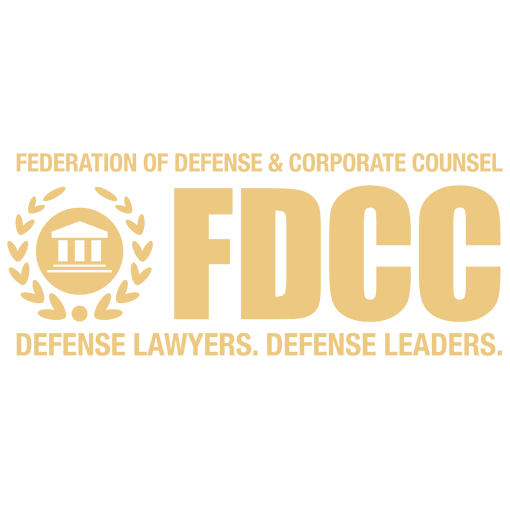Understanding Insurance Bad Faith Claims
February 15, 2025
When you purchase an insurance policy, you expect your insurer to act in good faith by honoring their obligations and providing the protection you’ve paid for. However, there are instances when insurance companies fail to uphold their responsibilities, leaving policyholders vulnerable. This failure is often referred to as insurance bad faith. At Coffey, Senger, Hancock & Harmon (CSHH), we help individuals and businesses understand and navigate bad faith claims, protecting their rights and pursuing fair compensation.
What Is Insurance Bad Faith?
Insurance bad faith occurs when an insurer fails to fulfill its contractual duties to a policyholder or engages in unfair practices. Insurers have a legal obligation to handle claims honestly, fairly, and promptly. When they don’t, the policyholder may have grounds to file a bad faith claim.
Examples of Bad Faith Practices:
- Denying a valid claim without a reasonable explanation
- Delaying payment of a claim unnecessarily
- Failing to conduct a proper investigation into a claim
- Offering significantly less compensation than the claim’s worth
- Misrepresenting policy terms to avoid paying a claim
Bad faith claims can arise from a wide range of insurance policies, including health, auto, homeowners, and business insurance.
Types of Insurance Bad Faith Claims
Bad faith claims generally fall into two categories: first-party claims and third-party claims.
First-Party Bad Faith
This involves disputes between the policyholder and their insurance company. Common examples include:
- Refusing to cover damages after a car accident despite policy coverage
- Denying a claim for property damage caused by a natural disaster
Third-Party Bad Faith
This arises when an insurer fails to properly defend or settle a claim on behalf of the policyholder in a liability case. For instance:
- Failing to settle a claim within policy limits, exposing the policyholder to excess liability
Legal Standards for Bad Faith
The specific legal standards for proving bad faith vary by state. In Oklahoma, Kansas, and Missouri, bad faith is determined based on whether the insurer acted unreasonably or without proper cause.
Oklahoma
- Oklahoma follows strict bad faith laws, allowing policyholders to seek both compensatory and punitive damages for an insurer’s misconduct.
- Courts evaluate whether the insurer had a legitimate reason for denying or delaying the claim and whether it acted with malice or reckless disregard for the policyholder’s rights.
Kansas
- In Kansas, bad faith claims focus on whether the insurer’s actions were arbitrary, capricious, or unreasonable.
- Kansas law allows for the recovery of damages, including emotional distress and attorney fees, in proven bad faith cases.
Missouri
- Missouri law emphasizes the insurer’s duty to act with diligence and fairness.
- Policyholders can pursue damages for economic losses and emotional harm caused by bad faith practices.
Signs You May Have a Bad Faith Claim
Policyholders should be aware of common red flags that may indicate bad faith. These include:
- Unjustified Denial: If your insurer denies your claim without a clear and valid reason, it may be acting in bad faith.
- Lack of Communication: Failure to respond to your inquiries or provide updates on your claim is a warning sign.
- Unreasonable Delays: Excessive delays in processing or paying your claim could indicate bad faith.
- Lowball Settlement Offers: Offering significantly less than the claim’s actual value without justification may constitute bad faith.
If you suspect your insurer is acting in bad faith, consult an experienced attorney to evaluate your case.
How to File an Insurance Bad Faith Claim
Filing a bad faith claim requires careful documentation and legal expertise. Here’s a step-by-step guide:
- Review Your Policy
Understand the terms of your insurance policy, including what is covered, exclusions, and the insurer’s obligations.
- Gather Evidence
Collect all relevant documents, such as:
- The insurance policy
- Correspondence with your insurer
- Documentation of your claim (photos, receipts, medical records, etc.)
- Notes on conversations with insurance representatives
- Document the Insurer’s Conduct
Record specific instances of unreasonable delays, denial reasons, or misleading statements.
- Consult an Attorney
An attorney specializing in bad faith claims will assess your situation, advise on the strength of your case, and handle negotiations or litigation.
- File a Lawsuit if Necessary
If the insurer refuses to resolve the issue, your attorney may recommend filing a lawsuit to pursue compensatory and punitive damages.
Damages Available in Bad Faith Claims
Policyholders who successfully prove bad faith may recover a variety of damages, including:
Compensatory Damages
These cover the direct financial losses resulting from the insurer’s misconduct, such as:
- Unpaid claim amounts
- Additional expenses incurred due to claim denial
Emotional Distress Damages
In cases where the insurer’s actions caused significant stress, courts may award damages for emotional harm.
Punitive Damages
Punitive damages are intended to punish the insurer for egregious misconduct and deter similar behavior in the future. These are more common in cases involving malicious or reckless actions.
Defending Against Bad Faith Allegations
For insurers, bad faith allegations can have serious financial and reputational consequences. At CSHH, we also provide robust defense strategies for insurers, focusing on:
- Demonstrating reasonable grounds for claim denial
- Providing evidence of thorough investigations
- Highlighting policy exclusions or limitations
Our attorneys work closely with insurers to minimize liability and protect their reputation.
How CSHH Can Help with Bad Faith Claims
At CSHH, we understand the complexities of insurance bad faith cases and the stakes involved for both policyholders and insurers. Our attorneys provide comprehensive legal support, including:
- Assessing the merits of your claim
- Gathering evidence and documentation
- Negotiating with insurers for fair settlements
- Litigating bad faith cases when necessary
Internal Link: Learn more about our Insurance Law Services and how we can assist with your case.
Protecting Your Rights in Insurance Bad Faith Cases
Dealing with an insurance company’s bad faith practices can be overwhelming and frustrating. Whether you’re a policyholder seeking compensation or an insurer defending against allegations, having experienced legal representation is essential. At Coffey, Senger, Hancock & Harmon, we are committed to protecting your rights and achieving the best possible outcome.
If you suspect bad faith or need assistance with a claim, contact our office today for a consultation.
SEO Enhancements
Meta Title: Understanding Insurance Bad Faith Claims | CSHH Law
Meta Description: Learn what insurance bad faith is, how to identify it, and the steps to file a claim. Get expert legal advice from CSHH to protect your rights.
Focus Keywords:
- Insurance bad faith claims
- Bad faith practices
- Filing a bad faith lawsuit
- Signs of insurance bad faith
- Oklahoma bad faith laws
Alt Text for Images:
- Policyholder reviewing denied insurance claim
- Attorney discussing bad faith case with client
This 1200-word blog post is optimized to educate readers, build trust in CSHH’s expertise, and improve search engine rankings.









